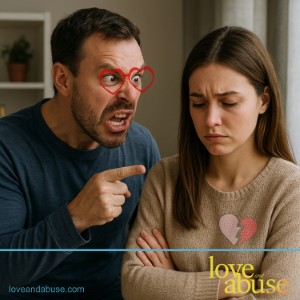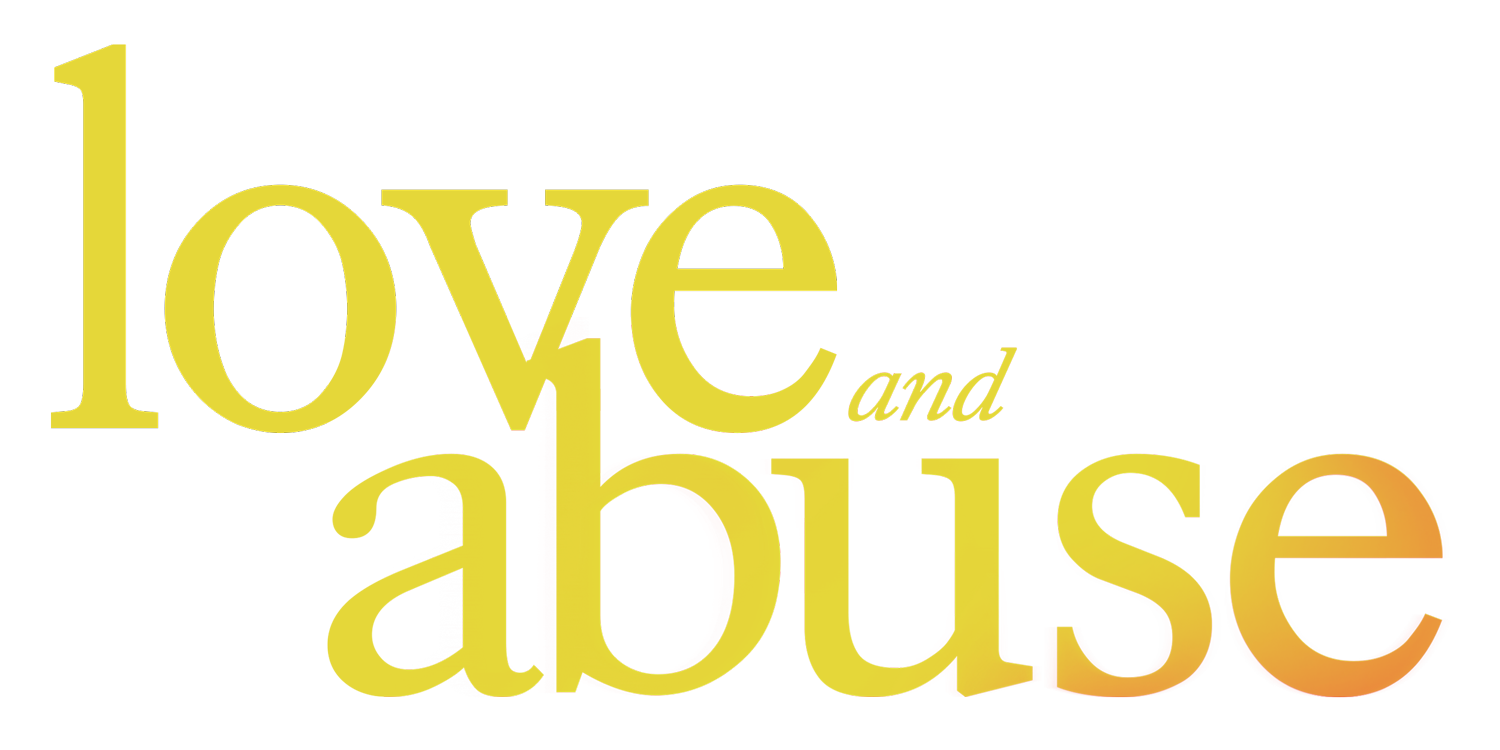
An emotionally abusive relationship will change you. And the longer you’re in one, the more you will lose yourself in it. Getting back to who you were can be a difficult, but not impossible journey.
When someone tells you who you are instead of asking who you are, they reveal more about themselves than you.
That was something I posted on Instagram a while back. I received a comment on that post from someone who said I should make that subject into an episode – so here we are. Below is the article that goes along with this episode.
This is so important. If somebody tells you who you are instead of asking who you are – or even worse, if they don’t accept who you are already – it reveals everything about them, not about you.
I want you to burn this into your brain so you don’t feel unlovable, unworthy, or unimportant. I don’t want you to feel less than you actually are. If those low thoughts and feelings are going through your mind or heart right now, please understand that certain people simply do not know how to love in a healthy way.
My definition of love is supporting another person’s path to happiness, supporting their decisions, supporting who they are – not trying to change or control them. It’s accepting another person as they are.
When someone truly loves you, they accept you. Even when you say something they disagree with, they still accept you. They don’t try to change or control you. If they do try to change or control you, I would call that abusive. It’s someone wanting what they want, regardless of what you want or how you feel about it. It’s someone wanting you to be who they want you to be, even if you don’t want to be that person.
The challenge is that many victims of emotional abuse try to adapt and change to meet someone else’s standards, believing that if they make the emotional abuser happy, they will, in turn, be happy because the relationship will go smoother. But the truth is, unfortunately, twofold.
First, you become someone you’re not. You change in ways that feel uncomfortable because they’re not authentic to who you really are. You start accommodating somebody who wants you to change.
Second, for the abusive person, even if they were initially happy with the changes they saw, it won’t be enough. There’ll always be something else you have to change, or something else that bothers them that didn’t bother them before. You might be with someone who’s never happy, no matter how much you try to accommodate or adapt.
If you burn that into your brain, that someone who is hard to please will never be pleased, then you’ll know what happens if you continue trying to change.
There’s also a third element I didn’t mention: you will develop resentment. As you change who you are to please someone else, you’ll inevitably feel resentment toward the person who can’t accept you as you are.
I’ve seen this pattern play out in relationships where people think, “When we get married, maybe things will get better.” But marriage typically amplifies what’s already happening. Whatever difficulties exist now will still be there in the marriage, but intensified by the commitment you’ve made to each other.
If you’re engaged right now and experiencing relationship problems, those same issues will carry into your marriage if they’re not resolved. Whatever is happening today will happen tomorrow, will happen when you get married, will happen when you have kids, and will happen when you get a house.
I know I’m preaching to the choir for some people reading this, but for those who don’t know, whatever’s happening now will be carried forward into the future, usually with increased intensity. If things are going great and only getting better, that’s typically where they’ll continue to go. If they’re not, and you expect them to get better after the next level of commitment, you may find out the hard way just how bad they could get.
There is a caveat, though. Some people are charming until you get married. Those situations are harder to spot. Some people put on their best face, acting wonderfully supportive and loving, then transform into someone different after marriage.
And it’s terrible when someone changes after you get married because it blindsides you completely. It’s totally unexpected. That’s why conversation and communication are so important before the next level of commitment. Also, pay attention to the red and orange flags.
For example, someone might say, “I talk to my ex every now and then, and my partner has a problem with it, but it’s no big deal.”
Actually, if they have a problem with it, it is a big deal. They might think of their partner, ‘Why do you care? We don’t have anything between us anymore. We’re just exes. This is one little thing that shouldn’t be a problem. Maybe we share a kid together and have to communicate about that.’
But if there’s a problem in the relationship today about that “one little thing” that never gets resolved, it becomes a much bigger deal when you take the relationship to the next level. It’s like an argument over dirty dishes. You might think, ‘It’s no big deal, we just had this little spat.’ But that can lead to an ongoing building of resentment that never gets resolved, which always shows up in other ways in the relationship.
The ideal solution, of course, is open and honest communication. If something is bothering you or the other person today, the negativity will get “carried over” tomorrow, so to speak, if there is no resolution. But honest communication can be difficult with some people, as you know.
What Acceptance Looks Like
Let’s look at a real world example (about doing the dishes, coincidentally) and run it by the statement I made earlier, “When someone tells you who you are instead of asking who you are, they reveal more about themselves than you.”
I applied that to my own life a few years ago and it changed the way I felt about my wife never doing the dishes. 99% of the time, I end up cleaning up the kitchen, doing the dishes, and wiping down the counters.
I remember standing over the kitchen sink one day having that tiny little resentment sneak in (“why doesn’t she ever do the dishes? She says she likes a clean kitchen!”). We have a great relationship, so it bothered me that something bothered me!
But as I was doing the dishes one day, feeling a bit perturbed that I always end up cleaning the kitchen, I asked myself how else I could look at this situation. I wanted to be open to a healthier, more positive perspective. I didn’t want this .01% bad feeling to invade the other 99.99% good feelings I had for her. I didn’t want that building resentment. I never want obstacles like that in our relationship. So after reflection, I asked myself if I was accepting her as she is. I asked if I was letting her be a person who doesn’t like doing dishes.
That was a good question! I remember when we met, she lived alone with her son and the dishes were always stacked up next to the sink. She would eventually get to them, but it bothered me to have so many dirty dishes that I started washing them often. But the point is that I stepped into this relationship knowing who she was.
That gave me a new perspective. That caused me to ask myself if I expected her to change after we got together. And with that change in thinking, I also asked myself what she does that I don’t like doing. That’s when it hit me: She does the things I don’t like to do and I do the things she doesn’t like to do. Interesting! For example, she makes the phone calls I don’t want to make. She takes care of the bills. She works on the landscaping and plants… all stuff I really don’t want to do.
For years I was focused on was her not doing the dishes. But reflecting on what she does that I don’t like to do highlighted where my attention was going and also where should be insteead. As soon as I realized I don’t want to make those calls and I’m glad she makes them, that was like her doing the proverbial dishes I don’t want to do. I do the dishes… she makes the phone calls… Wow, that’s fine with me!
Now I actually enjoy cleaning up the kitchen and doing the dishes because I don’t have to make the phone calls or take care of the plants!
Now, this may not be your case. You may do everything while they do nothing. Or you may do some things and they do some things, but they’re also being hurtful, controlling, or manipulative. And you don’t like that, of course. You want that to stop. Maybe all you want is for them to accept you as you are.
If somebody isn’t accepting you as you are, remember their inability to accept has nothing to do with your worth, your lovability, your significance in the world, or how other people see you.
I guarantee you, the people you care about most in your life see you as a wonderful, worthy, lovable person. If this one person can’t accept you as you are and wants you to change, what they’re showing you isn’t about you. It’s about how they want to control you and have power over you so that you show up in a way that makes them comfortable – so they don’t have to feel uncomfortable dealing with their own issues.
The way people like that handle challenges is to push their inability to deal with those challenges onto you to make you change and feel bad so that they don’t have to. That’s not what loving people do.
People being unloving doesn’t mean you are unlovable.
People who cannot see your worth doesn’t mean you’re unworthy.
You are worthy of kindness, respect, love, and compassion. You are worthy of somebody caring about you. And just to drive this home:
If somebody doesn’t care about you, that’s not because you’re not worth caring for. It’s because they have an inability to care for you in a healthy way.
This shift in perspective is vital if you’re going to make it through any relationship where you are slowly becoming a shell of your former self. As you get convinced that you are unlovable, unworthy, and not good enough as you are, you start to disintegrate from the inside out. Your passion and zest for life gets ripped out of you because you put a lot of faith into the words and actions of somebody who never learned to love in a healthy way.
Their behaviors are not your fault. They need to heal. They need to work on themselves. They need to figure out their issues so they don’t push their unhealed stuff onto you. That may involve them going to therapy, reading books, joining the Healed Being program that I run, or doing something to show they care about you so strongly that they’re willing to step into humility and vulnerability to show up as a healthier version of themselves.
Emotionally abusive people who want to heal will admit they’ve been wrong and hurtful. They will acknowledge they need to work on themselves because they no longer want to hurt the person they claim to love. They will also choose to accept others as they are because that’s loving.
Never forget who you are. And if you can’t remember who you were, start becoming who you want to be instead.
